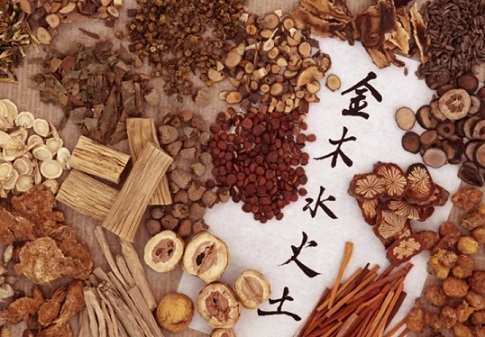Traditional Chinese Medicine Combined with Modern Biomedicine Shows Promise in Treating Idiopathic Membranous Nephropathy
Nikhil Prasad Fact checked by:Thailand Medical News Team Nov 01, 2024 5 months, 3 weeks, 1 day, 16 hours, 34 minutes ago
TCM News: Researchers from Dongzhimen Hospital, Beijing University of Traditional Chinese Medicine, and the Chinese PLA General Hospital in Beijing, China, have delved into the effectiveness of combining Chinese herbal medicine with conventional biomedicine in treating idiopathic membranous nephropathy (IMN). IMN, a severe kidney condition marked by the thickening of kidney membrane walls, is often difficult to manage with existing treatments alone. Patients face issues such as high protein levels in urine, low serum albumin, and high cholesterol and triglyceride levels.
 Traditional Chinese Medicine Combined with Modern Biomedicine Shows Promise in Treating
Traditional Chinese Medicine Combined with Modern Biomedicine Shows Promise in Treating
Idiopathic Membranous Nephropathy
This
TCM News report evaluates the latest findings from a comprehensive study employing network meta-analysis. The study’s aim was to determine whether combining traditional Chinese Medicine (TCM) remedies with standard biomedical treatments could yield better outcomes than using biomedicine alone.
Key Study Findings: Chinese Herbs and Biomedical Integration for Better Outcomes
The study analyzed 31 randomized controlled trials (RCTs) with a combined patient sample of 2,195. Fifteen different Chinese herbal medicine (CHM) options were evaluated in conjunction with biomedicine (BM). Each intervention targeted specific clinical indicators of IMN, including 24-hour urinary protein levels, serum albumin, serum creatinine, cholesterol, and triglyceride levels, as well as the incidence of adverse effects.
Here are some of the main findings from the study:
-24-Hour Urinary Protein Reduction: The most effective herbal formula for reducing urinary protein, a key symptom of IMN, was identified as Qiqi Yi Shen capsules (QQC) combined with BM. This combination achieved an 84.7% success rate in reducing 24-hour urinary protein, significantly more than other combinations. Elevated protein levels in urine are a hallmark of IMN, and effective reduction is crucial for slowing disease progression and preventing kidney damage.
-Serum Albumin Improvement: In terms of improving serum albumin, a protein that plays an essential role in the blood, Huangzhi Yishen capsules (HZC) with BM were found to be 86% effective. Maintaining optimal albumin levels is critical for IMN patients, as low levels can lead to edema (swelling) and other complications.
-Serum Creatinine Enhancement: The combination of Leigongteng polysaccharide tablets (LGT) with BM showed a 77.2% efficacy in improving serum creatinine levels, a marker of kidney function. Higher serum creatinine can indicate impaired kidney function, so this improvement suggests a protective effect on the kidneys.
-Cholesterol and Triglycerides Management: For patients struggling with high cholesterol and triglycerides, a common issue with IMN, Maixuekang capsules (MXC) paired with BM proved the most effective. This combination achieved an 89% succ
ess rate in reducing total cholesterol and a remarkable 97% efficacy in lowering triglycerides. High cholesterol and triglycerides are additional risk factors for cardiovascular issues, so this finding is particularly beneficial for comprehensive patient care.
-Safety and Adverse Reactions: The study also focused on minimizing adverse reactions, which can be a significant concern with conventional treatments. Wuzhi capsules (WZC) paired with BM were associated with the lowest incidence of adverse reactions, marking a notable safety advantage. The low side-effect profile of this combination offers a potential alternative for patients sensitive to the side effects of standard treatments.
Why This Approach Matters: Addressing Gaps in Current IMN Treatments
Current IMN treatments primarily involve immunosuppressants and corticosteroids, which can lead to various adverse effects, including increased infection risk and metabolic complications. Chinese herbal medicines have gained popularity for their multi-target effects and lower toxicity, offering a promising solution when combined with biomedicine. This study is particularly relevant because it provides direct comparisons, allowing healthcare providers to evaluate which Chinese herbal medicine combinations work best alongside biomedicine.
For instance, QQC’s significant impact on reducing urinary protein levels could be a game-changer in managing IMN, as high protein in urine is a major predictor of disease progression. Similarly, HZC’s efficacy in improving serum albumin suggests it could help prevent complications related to protein loss, making the management of IMN less challenging.
Conclusion: Combining Traditional and Modern Medicine Offers New Hope for IMN Patients
The findings underscore the potential benefits of integrating Chinese herbal medicines with standard biomedicine to treat idiopathic membranous nephropathy. With QQC demonstrating high efficacy in reducing urinary protein, HZC showing improvements in serum albumin, and WZC ensuring minimal adverse effects, these combinations could represent a substantial advancement in IMN treatment options. By offering alternatives that could reduce side effects and improve quality of life, the integration of traditional Chinese medicine and modern biomedicine holds promise for better clinical outcomes in IMN management.
The study findings were published in the peer-reviewed journal: Frontiers in Pharmacology.
https://www.frontiersin.org/journals/pharmacology/articles/10.3389/fphar.2024.1391675/full
For the latest
TCM News, keep on logging to Thailand Medical News.
Read Also:
https://www.thailandmedical.news/news/traditional-chinese-medicine-formulation-called-fufang-yinhua-jiedu-granules-shows-promise-in-covid-19-treatment
https://www.thailandmedical.news/news/traditional-chinese-medicine-herbs-that-target-neutrophil-traps-to-combat-thrombosis
